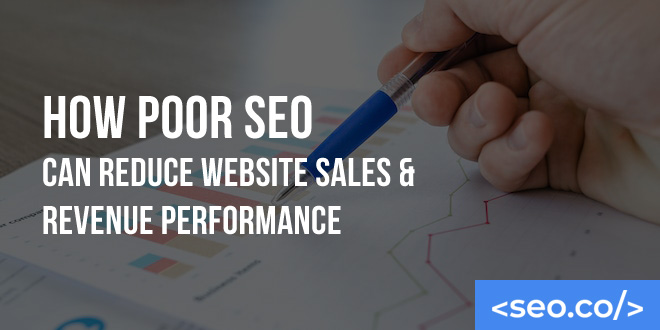Search engine optimization (SEO) isn’t the same for every website or niche.
But while it’s not a “one size fits all” process, there are a set of simple strategies, which–when executed together–can result in your website ranking higher for competitive keywords.
Ranking higher for various keywords usually results in much higher traffic volumes coming to your website, which in turn increases the total number of sales that are generated by your online marketing efforts.
However, some business owners execute SEO strategies that are questionable, in an effort to increase their rank, and as a result, some of their site visitors become disinterested, rather than engaged.
In effect, these poor SEO strategies do end up bringing more people to the website, but because of their low quality, they only end up in lost sales.
Table of Contents
Examples of Poor SEO
There are many types of poor-quality SEO strategies, but all of them are rooted in the same mentality. Focusing only on the end result of SEO, increasing ranks in SERPs, instead of focusing on user experience, leads to robotic, mathematical designs and copy, which alienates users rather than welcoming them. In effect, poor SEO is the process of writing and designing for a machine (Google’s bots) rather than writing and designing for humans.
These are just some of the ways that poor SEO can manifest itself in a typical site:
- Robotic, flat copy that sounds unnatural or is stuffed with keywords.
- Pages that exist solely to anchor a specific keyword, and serve no real purpose for the site.
- Meta titles and descriptions that aren’t appealing or compelling.
- Irrelevant or off-topic keyword phrases appearing out of context on the site.
- Irrelevant or non-valuable links posted on external sites.
Any of these results of poor SEO can ultimately lead to lost sales opportunities.
Human Robot Detectors
The most notorious symptom of poor SEO is robot-sounding page copy, which can alienate users and result in a bad experience.
This usually comes as a result of writing copy for the sole purpose of filling up web space, such as creating a new page in your navigation just to rank for a specific keyword, or stuffing copy so full of keywords that it no longer makes any logical sense.
A new visitor coming to your site will see this kind of material and immediately get a bad impression.
They may not know your material was written specifically for SEO, but they’ll know it wasn’t written for them because it doesn’t sound like a human. You have to write content like a human if you’re going to appeal to a human.
Endless Navigation
Adding pages to your navigation for the sole purpose of increasing rank is also a bad idea.
While it’s true that having a dedicated page for a product or service will increase your rank for that product or service, adding a page simply for the sake of adding a page is only going to leave you with extra fluff.
It tends to fill up your navigation bar or your site map, which can be confusing to inbound users (especially if they’re new to your business).
And if a user spends too much time trying to figure out what’s a real page on your site and what’s just fluff, they’re going to leave before they have the chance to convert.
Minimal On-Page Value
When a user comes to your site, it’s your job to make sure they stay there. A high bounce rate means that the majority of users who come to your site leave before taking any further actions, and that’s a direct result of having minimal on-page value.
Practitioners of poor SEO only look at how their site layout and design function for search engines instead of how they engage with incoming visitors.
If you want to keep your visitors on your site and increase the likelihood of conversions, you’ll need to add more value to your individual pages, such as unique content, embedded videos, infographics, or other informative or entertaining materials.
Unanswered Questions
Your site also needs to answer your users’ questions, and if you’re busy stuffing keywords into flat, uninteresting content, you’ll never have the chance.
Use FAQ sections, contact us pages, and your blog to write up and answer all the common questions that your users have.
Remember, your goal is to inform your users and make your company seem like an approachable, trustworthy source. Otherwise, you can abandon any hope of achieving conversions.
Irrelevant Traffic
Poor SEO can also lead to irrelevant traffic, which is the perfect example of a vanity metric.
Even if you’re optimizing for a keyword that seems relevant to your industry, it may not generate a segment of your demographics with a high tendency to convert.
For example, stuffing your pages with the term “how to prepare a steak” will attract people who may already have steaks and aren’t interested in purchasing them.
Instead of focusing on specific keywords, just write valuable content that highlights your business. Google will be able to interpret the rest and present you when relevant user queries arise.
Poor Link Posting
Posting external links that aren’t grounded in value can also lead to lost interest and lost sales.
For example, if you just post backlinks randomly, not only will you probably get a penalty from Google, you might also dissuade potential customers due to your spamming them.
Make sure all your links are relevant to the blog or forum, relevant to the conversation, and valuable for anyone who might stumble across it.
How to Prevent Poor SEO
Rather than actively trying to avoid mistakenly using poor SEO in your marketing strategy, all you have to do is adjust your mentality.
True, SEO is all about trying to improve your rank in search engines, but your primary focus needs to be on your user base.
Rather than implementing new pages or new copy that you think will make Google happy, make changes that you think will make your users happy.
Look at everything from a user experience perspective rather than a search engine bot perspective, and the rest should happen naturally.
If you’re worried about optimizing for humans and losing the favor of search engines, don’t be. Google cares about getting the best, most relevant results for its users and giving them the best possible online experience. In fact, it doesn’t even use keywords as its fundamental basis for searches anymore. Instead, it uses a concept known as semantic search, which analyzes the intent behind a user query and finds the appropriate materials based on how it understands each site to function. In effect, keywords aren’t as important as they used to be—you just have to be the most relevant, valuable answer on the web to incoming user queries. That means providing the best user experience. In short, as long as you’re making your users happy, you’re making Google happy, and the rest will happen naturally.
This is one of the very reasons we avoid schemes like pay-for-performance and focus on sustainable SEO results.
While it’s tempting to do anything and everything you can to increase your rank in major search engines, think twice before committing your strategies. Over-optimizing your website and offsite strategies can ultimately lead to poor SEO, which can compromise any increase in rank you might experience and result in hundreds of lost leads. Remember, no matter how badly you want to increase your traffic and please search engine robots, your users have to come first.
- Your Law Firm SEO Expert: Choosing a Marketing Partner for Your Law Firm - April 10, 2024
- 7 Most Important Keyword Metrics to Track in SEO - April 2, 2024
- Niche Edits: A Guide for Niche Edits in SEO Link Building - February 5, 2024




